Personally and professionally, it’s harder than ever to stand out and make yourself heard. These industry leaders and advisors in The Oracles reveal how they differentiate themselves from their biggest competition.
1. Solve a problem and know your business inside out
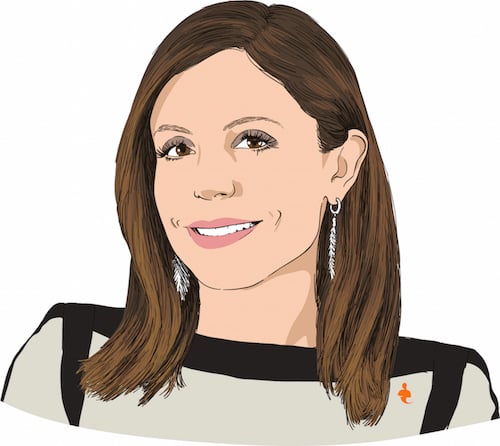
“To separate yourself from the pack, you have to solve a problem for your customers. Then you must be able to communicate the function of your business or idea — and deliver on its promise.
Entrepreneurs should know every inch of their business by heart. You should be able to instantly answer every question about why it solves a problem and fills a void in a flooded marketplace. Better yet, your brand should speak for itself. For example, the idea behind my liquor brand, Skinnygirl, was simple. Anyone who comes in contact with the product immediately understands its name and function.”
—Bethenny Frankel, founder of Skinnygirl, cast member of “The Real Housewives of New York City,” NYT best-selling author, and Shark on “Shark Tank“; follow Bethenny on Twitter and Instagram
2. Work harder than everyone else
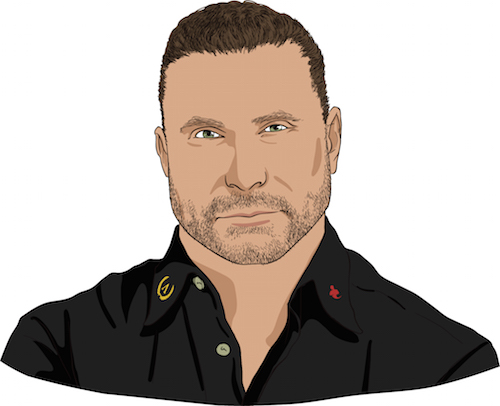
“The way to differentiate yourself is to outwork everyone. Others can replicate your product but they can’t outwork you. Be willing to do things that others aren’t willing to do. That’s when you go to the next level.
This strategy doesn’t work because you get better at what you do or make more contacts; it works because you change your self-worth, and we get out of life what we believe we’re worth. Most entrepreneurs don’t believe they deserve to win — and they’re right. Until you outwork everyone, you don’t deserve to get things others don’t get.”
—Ed Mylett, bestselling author, cofounder of the Arete Syndicate, global keynote speaker, host of the #MAXOUT top-10 podcast; follow on YouTube, Instagram and Facebook
Related: 9 Leading Entrepreneurs Share the One Decision That Changed Their Lives
3. Dominate a “blue ocean”

“If you own a taxi service, there’s a ton of competition in your ocean. Lots of sharks mean a lot of blood in the water. That’s a ‘red ocean’ market. Even if you’re better than the competition, you’re the one saying you’re better, and consumers don’t know whether to trust you.
A ‘blue ocean’ market is untapped. When Uber introduced ride-sharing, they changed the taxi industry. In that scenario, you’re the best and the only one doing what you do. But it doesn’t have to be revolutionary. For example, I founded the High-Ticket Closers Certification Program. While the sales business isn’t new, ‘high-ticket closer’ was a different way to describe those who sell premium products. That put me in a blue ocean, and that’s where you want to be.
—Dan Lok, Chinese-Canadian serial entrepreneur, global educator, international best-selling author of “Unlock It!“, two-time TEDx opening speaker, and founder of Closers.com, which connects companies to closers; follow on YouTube, Facebook and Instagram
4. Embrace data, social and mobile
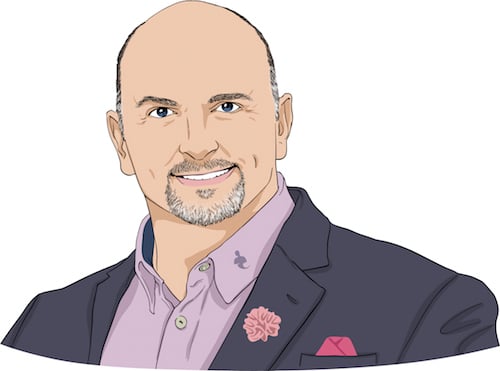
“The world of business is powered by data. Over 52 percent of all media is consumed on mobile devices (a 21 percent increase in just three years). You need to connect with your customers and stand out in ways your competitors don’t.
Use data to identify, target and build an audience of your ideal customers by adding value through a steady schedule of ‘mobile-friendly’ content. That means short paragraphs and sentences, no fluff, and practical insights. Step inside their shoes: What are their struggles? Educate them on solutions, step by step.
“Data doesn’t lie, people lie.”
Do this on social media, which is at an all-time high, with Instagram having over one billion monthly active users, up from only 90 million just five years ago.
I often say, ‘Data doesn’t lie, people lie.’ This data tells you exactly where your audience is and where your focus should be to stand out and rise to the top over your competition. This will position you as the ‘only choice’ in your niche to crush your competitors.”
—Matt Mead, founder and CEO of Mead Technology Group, EpekData and BrandLync
5. Provide value for everyone

“Consider a marketing strategy that provides even prospective clients with substantial value. Create webinars, live streams, downloads and blog posts with content so original and informative that people feel compelled to share, save and print it. A subscriber once sent us a $100 check to thank us for a free webinar because he got so much value from it.
Find out what your clients already buy from another company — then create a better version of it. That’s how we created our Speaker Video Summit, our clients’ number-two purchase after finishing our speaker mentoring program. Help your customers do more business with the business they already love: Yours!”
—David Newman, author of “Do It! Marketing” and creator of the Speaker Profit Formula; connect with David on LinkedIn
6. Be an outlaw and stop following the crowd
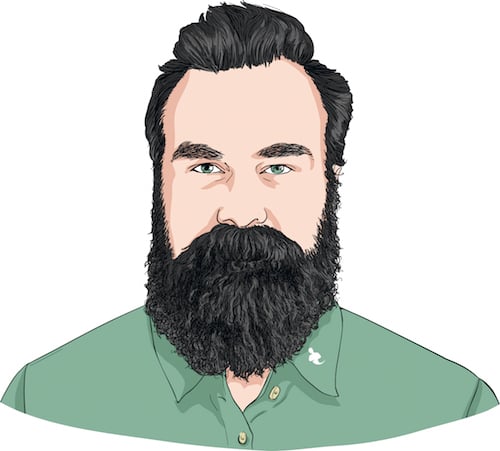
“Most entrepreneurs get one thing wrong: They blend in. Stop selling features and benefits, and start selling the solution to a problem. Does Apple advertise the size of their hard drives? No! They’re selling a lifestyle — and you should too.
When a talented artist asked me about growing his business, I asked what’s special about it. He started talking about his artwork and reliability — features and benefits. As I dug deeper, I discovered that business clients love his signs because people share pictures of them on social media, including their business name. Bingo! Everyone wants to go viral, so we re-positioned him around that. Listen to your customers and focus on the magic you provide.”
—Chris Collins, business trainer and coach; author of three books, including Amazon bestseller, “Gamification: Playing for Profits”; and founder of Syndicate X; read about Chris
7. Answer questions throughout the customer journey

“You need a systematic way of getting the right content in front of the right audience at the right time. Get clear on who your audience is and what they want. Map the stages they need to move through to get from where they are to where they want to be.
Identify their questions in each stage, such as, ‘How are you different (and better) than your competitors?’ Then answer their questions through your free lead generation content and offers, so they transition from discovering you to choosing you, to getting results with you — and referring you!”
—Jeanine Blackwell, bestselling author, creator of The Expert Experience Method, trained over 40,000 experts (including Fortune 500 companies) to package their expertise into products; connect with Jeanine on Facebook
8. Continuously improve the customer experience

“When e-commerce companies began offering two-day shipping, they created an expectation among consumers. Not only do consumers get their orders faster, but the guaranteed shipping provides a level of confidence and comfort that is expected today — from all businesses.
Think through the entire customer experience. For example, if you’re in e-commerce, analyze your order history and customers’ locations. Then distribute your inventory to reduce shipping costs and decrease the time from the order to their doorstep. We’ve seen businesses increase their average order value by 97 percent by offering two-day shipping — even if their competitors don’t. When you improve the customer experience, you get results.”
—Dhruv Saxena, cofounder and CEO of e-commerce fulfillment company ShipBob Inc.; connect with Dhruv on LinkedIn
9. Look outside your market and know your “why”

“Study how you can bring practices from other industries to your business. For example, we started hiring real estate agents on a salary model because many people aren’t comfortable starting on 100-percent commission. This gave us access to talent no other brokers were recruiting.
Knowing why you do what you do will get you through difficult times. After business school, I had 50 interviews but no job offers. Most people didn’t think I would be good at sales. So, I got my real estate license and went to work for myself. My why became proving that I could do it. Whenever a prospect said no, that pushed me harder. I sold over $22 million that year and tripled what I would have made in the jobs I didn’t get.”
—Daniel Lesniak, founder of Orange Line Living, broker at the Keri Shull Team, and cofounder of real estate coaching business HyperFast Agent; author of “The HyperLocal, HyperFast Real Estate Agent“
10. Narrow your target audience
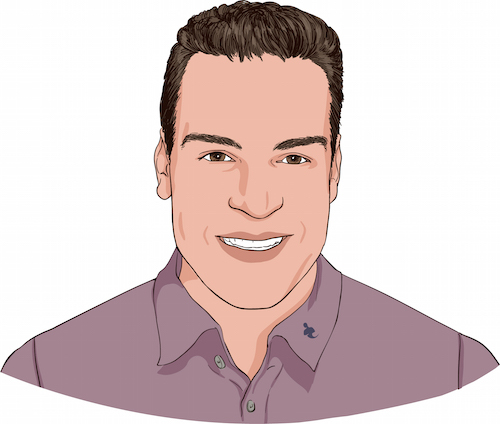
“No matter your industry, it’s oversaturated with talented people. You can change the game by focusing on something very specific, while your competition goes for the masses. That way, you’re no longer competing with everyone.
Focus on a specific market with a unique offering that you’re great at. Then position your product or service to cater to your audience and satisfy their needs. If you found a company that focuses on your industry and has proven success with companies just like yours, would you look elsewhere?”
—Rafael Romis, founder and CEO of award-winning digital agency Weberous and e-commerce strategist at Generate Culture; connect with Rafael on LinkedIn
Sign Up: Receive the StartupNation newsletter!
11. Be creative and make it fun

“Be the best at what you do, or create a niche category and be the best in that niche. When we opened our call center, we focused on Spanish speakers in the United States. We made it our passion and became the best. Focus on your passion and share all the things that make you unique. Anyone can say they’re the best at sales. We were the best because we understood good copy and how to train agents to read it.
“Focus on your passion and share all the things that make you unique.”
We also showed up at events supporting the values of our business. We applied 100-percent effort and heart to everything — and we made it fun. One year, we offered photo opportunities with Mexican wrestlers at a trade show. You have to be creative to stand out.”
— Craig Handley, cofounder of ListenTrust and author of “Hired to Quit, Inspired to Stay“; read more about Handley: Why These Founders Train Their Employees to Quit
12. Focus on your ecosystem and relationships

“Differentiation is what drives success. As an entrepreneur, it’s essential to be able to explain what sets you apart. At DealBox, it’s our ecosystem and the quality of our relationships. We built the business around our relationships, not the other way around. Our clients are directly connected and work together to cross-pollinate, drive innovation and grow each other’s businesses.
Your business is a system. Consider what key service providers and clients you need and how they can fit together to impact the entire system. When you can differentiate yourself by your relationships and ecosystem, potential investors and clients can tell.”
—Thomas Carter, founder and CEO of DealBox Inc; read about Thomas: “This FinTech Veteran Is Making Cryptocurrency Startup Funding Legitimate“; connect with Thomas on LinkedIn and Instagram
Originally published on CNBC.com. © 2019 CNBC LLC. All Rights Reserved. Originally publish March 2, 2019, on startupnation.com.






